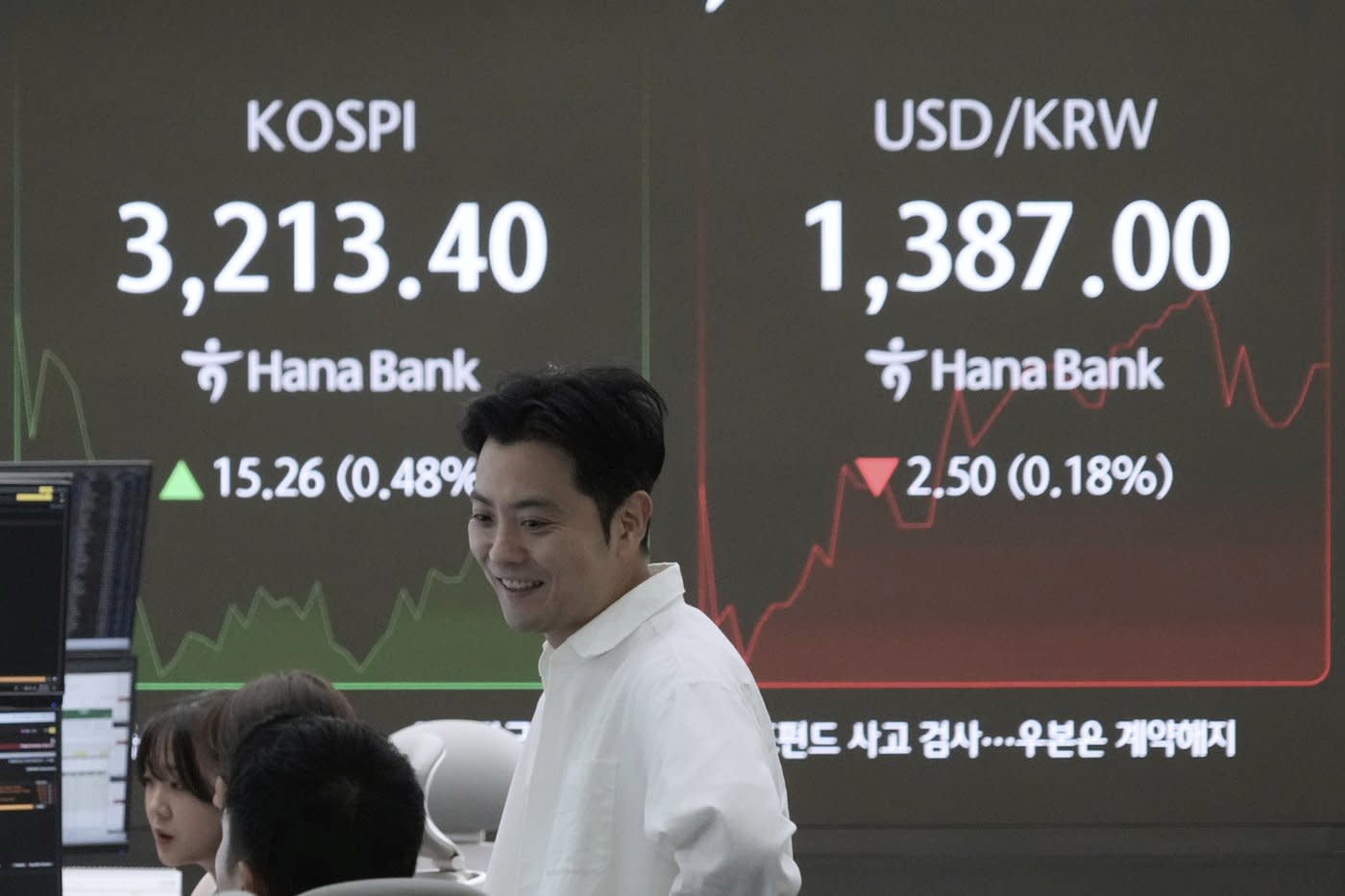Sports
Asian Markets Rise Following Apple-Driven Wall Street Rally

Asian financial markets experienced a positive trend on March 15, 2024, with most shares advancing significantly. This upward movement followed a strong performance by Apple Inc., which contributed to gains on Wall Street. The surge in Apple’s stock price provided momentum that resonated across many Asian exchanges.
Despite the optimism in the markets, recent developments regarding tariffs on exports to the United States seem to have had little impact on investor sentiment. These higher tariffs took effect on the same day and, according to analysts, did not deter market activity.
Market Overview
In Japan, the Nikkei 225 climbed by 1.2% to close at 29,450 points. Traders responded positively to the news from the United States, where the tech sector saw notable gains. The rise in stock prices for major companies like Apple has a ripple effect, often boosting confidence in technology stocks globally.
In South Korea, the KOSPI index rose by 0.8%, finishing at 2,600 points. Investors appeared to overlook potential risks tied to the newly imposed tariffs, focusing instead on the bullish momentum driven by strong earnings reports from tech companies.
Meanwhile, in Hong Kong, the Hang Seng Index gained 1.5%, closing at 20,800 points. Analysts pointed to the ongoing recovery in the tech sector as a primary driver of this increase. The overall sentiment in Asia suggests that the markets are looking for signs of stability and growth, particularly in technology.
Tariff Implications
The higher tariffs on exports to the United States, which were enacted to protect domestic industries, have raised concerns among exporters. However, the immediate reaction in Asian markets indicates a disconnect between tariff impacts and investor confidence.
According to market analysts, the lack of significant response to the tariff situation suggests that traders are more focused on growth potential rather than external pressures. This perspective is crucial, especially as global markets continue to navigate the complexities of international trade.
The lack of volatility in response to these tariffs may also reflect a broader trend of resilience among Asian economies. As companies adapt to changing market conditions, the focus remains on innovation and expansion, particularly in technology sectors.
Overall, while the imposition of tariffs could present challenges in the long run, the immediate market response indicates a robust confidence among investors, driven primarily by positive developments in the tech industry. The outlook remains cautiously optimistic as markets assess the longer-term implications of these economic policies.
-

 Politics4 weeks ago
Politics4 weeks agoSecwepemc First Nation Seeks Aboriginal Title Over Kamloops Area
-

 World5 months ago
World5 months agoScientists Unearth Ancient Antarctic Ice to Unlock Climate Secrets
-

 Entertainment5 months ago
Entertainment5 months agoTrump and McCormick to Announce $70 Billion Energy Investments
-

 Science5 months ago
Science5 months agoFour Astronauts Return to Earth After International Space Station Mission
-

 Lifestyle5 months ago
Lifestyle5 months agoTransLink Launches Food Truck Program to Boost Revenue in Vancouver
-

 Technology3 months ago
Technology3 months agoApple Notes Enhances Functionality with Markdown Support in macOS 26
-

 Lifestyle3 months ago
Lifestyle3 months agoManitoba’s Burger Champion Shines Again Amid Dining Innovations
-

 Top Stories2 months ago
Top Stories2 months agoUrgent Update: Fatal Crash on Highway 99 Claims Life of Pitt Meadows Man
-

 Politics4 months ago
Politics4 months agoUkrainian Tennis Star Elina Svitolina Faces Death Threats Online
-

 Sports5 months ago
Sports5 months agoSearch Underway for Missing Hunter Amid Hokkaido Bear Emergency
-

 Politics5 months ago
Politics5 months agoCarney Engages First Nations Leaders at Development Law Summit
-

 Technology5 months ago
Technology5 months agoFrosthaven Launches Early Access on July 31, 2025




















